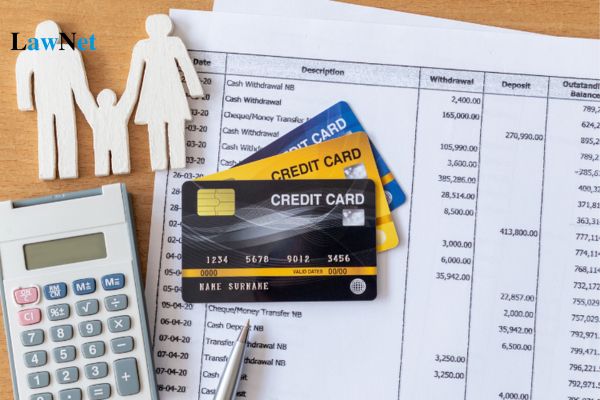What is the summary of 12,028 pages of financial statement records of the Vietnam Fatherland Front's Funds? Is financial contribution given to the Fund a deductible income when determining taxable income?
What is the summary of 12,028 pages of financial statement records of the Vietnam Fatherland Front's Funds?
To ensure transparency, the Vietnam Fatherland Front has publicly disclosed the account financial statement records of Vietcombank account 0011001932418 from September 1 to September 10, 2024.
The Central Committee of the Vietnam Fatherland Front has posted 12,028 pages of financial statement records detailing the Funds for people affected by storm No. 3, with a total amount reaching VND 527.8 billion.
To ensure transparency, the Vietnam Fatherland Front has published the account financial statement records for public monitoring.
The Central Relief Operation Board has also explicitly listed the organizations and individuals who contributed through Vietcombank account 0011001932418 from September 1 to September 10, 2024.
See all 12,028 pages of the Vietnam Fatherland Front's contributions fund financial statement records: Here

What is the summary of 12,028 pages of financial statement records of the Vietnam Fatherland Front's Funds? Can financial contributions be deducted when calculating CIT? (Image from the Internet)
Is financial contribution given to the Fund a deductible income when determining taxable income in Vietnam?
Based on Clause 1, Article 6 of Circular 78/2014/TT-BTC, as amended by Clause 1, Article 4 of Circular 96/2015/TT-BTC, the regulations are as follows:
Expenses that are deductible and non-deductible when determining taxable income
1. Except for the expenses not deductible stated in Clause 2 of this Article, businesses are allowed to deduct all expenses if they meet the following conditions:
a) Expenses actually incurred related to the production and business activities of the enterprise.
b) Expenses with sufficient legal invoices and documents as prescribed by law.
c) For any expense where the invoice for goods, services each time has a value from VND 20 million or more (including VAT), payment must have non-cash payment documents.
Non-cash payment documents are implemented according to the regulations of the legal documents on value-added tax.
In cases where the invoice for goods, services each time has a value from VND 20 million or more, if the enterprise has not yet paid at the time the expense is recognized, the enterprise is allowed to include it as a deductible expense when determining taxable income. When payment is made, if the business does not have non-cash payment documents, it must declare and adjust the reduced expense for the value of goods, services without non-cash payment documents in the tax period where the cash payment occurred (even if the tax authorities and other authorities have issued inspection and audit decisions for the tax period in which such expenses were incurred).
For invoices for goods, services that were paid in cash before the effective date of Circular 78/2014/TT-BTC, no retrospective adjustment is required based on this provision.
...
And per Clause 3, Article 12 of Decree 78/2021/ND-CP, the regulations are as follows:
Financial Sources
1. Mandatory contribution from domestic and foreign economic organizations in the area within a year is 0.02% of the total asset value according to the financial financial statement records made as of December 31 each year, reported to the Tax authority, with a minimum of VND 500,000 and a maximum of VND 100 million, and is included as the business's production and operational expenses.
2. Voluntary contribution, sponsorship, contributions from organizations and enterprises to the provincial disaster prevention fund is counted as a deductible expense when determining corporate income tax.
...
Thus, if businesses voluntarily contribute funds and meet the deductible tax conditions and do not fall under non-deductible expenses, these contributions can be deducted when calculating corporate income tax.
How to determine personal income tax calculation period in Vietnam?
Based on Article 7 of Personal Income Tax Law 2007 as amended by Clause 3, Article 1 of Personal Income Tax Law Amendment 2012, the personal income tax calculation period is determined as follows:
- For resident individuals:
+ Annual tax period applies to income from business; income from salaries and wages.
+ Tax period per each income occurrence applies to income from capital investment; income from capital transfer, except for securities transfer; income from real estate transfer; income from lottery prizes; income from copyrights; income from franchising; income from inheritance; income from gifts.
+ Tax period per each transfer or annually for income from securities transfer.
- For non-resident individuals: calculated per each occurrence of taxable income for all taxable income sources.

